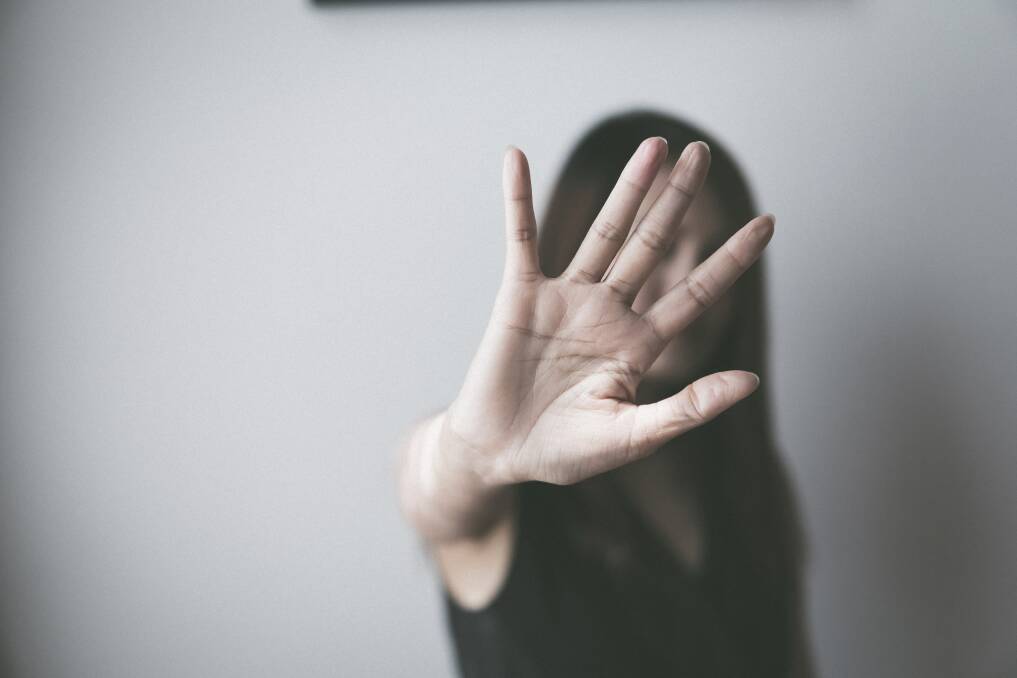
The University of NSW and the Illawarra Women's Health Centre released its report on a new Model of Care for women recovering from domestic, family and sexual violence yesterday.
Subscribe now for unlimited access.
$0/
(min cost $0)
or signup to continue reading
At the centre of this report which provides the framework for the proposed Women's Trauma Recovery Centre are the voice of victim survivors. This is why.
In 2021 women across Australia have made one thing very clear - the personal is political.
This year many of us have loudly demanded justice - sharing more openly than ever before our lived experiences of sexual harassment and assault, domestic abuse, violence, and rape.
My name is Geraldine Bilston. I am a victim-survivor of intimate partner violence. I have openly shared aspects of my story publicly many times. As a victim-survivor, I have wanted to highlight the problems, but I also want to contribute to creating the solutions. I am more than just my story.
In Australia, the family violence sector has a rich history of experience that has been built on the expertise, insights, and motivation of the lived experience of victim-survivors. Since the refuge movement in the 1970s, the sector has grown, developed, and evolved to where it is today - a workforce that brings with it valued professionalism.
However, the evolution of the professionalism of this sector has also seen the unintended consequence of our lived experiences that shape who we are, and the motivation of our work become hidden. Lived experience has become separated and silenced from professionalism in a way that often feels like a replication of our society's historical view of family violence being a private problem, one that is dealt with in hushed tones under the cover of shame.
Of course, we must continue to consider the balance between celebrating the strength of a survivor's public sharing and respecting the agency of those who choose for valid and real reasons to keep their experiences private.
We live in a society where institutional western education systems that credit participants with degrees are valued above all other forms of learning... but there are many different ways of knowing.
While consumer participation is rapidly growing in other spaces the incorporation and utilisation of lived experience remains in its infancy in the family violence space. While professionals are valued as content experts, it is the experience and insights of victim-survivors that place them as context experts.
It is impossible to have a full picture of the problem, nor a fully appropriate solution, without both of these perspectives. We must move away from a traditional hierarchy of knowledge.
Collaboration is key and survivors continue to insist that government and this sector work with us, not for us. We have a responsibility to understand those we seek to serve.
Valuing lived experience is not looking for a first-hand story to propel an already formed professional point of view. Victim-survivors are not a commodity for use to reinforce other people's agendas.
We are also not a homogenous group. To acknowledge and accept our diversity in experiences and opinions requires a commitment to creating solutions that centre agency, uphold our dignity, and understand intersectionality.
Curiosity is a sign of respect and I long for a time where we are driven by a genuine desire to learn from victim-survivors and purposefully work at understanding the very people we want to help.
We shouldn't ask a victim-survivor to speak unless we are ready to radically listen. For us to find our voice is one thing but an active audience is another. To radically listen requires a suspension of judgement, listening not to refute but to understand. An active audience will also be willing to act - to truly centre lived experience requires a willingness to be informed and guided by victim-survivors.
'Placing lived experience at the centre of our work requires shifts within us, not just changes to or tweaks of the systems we work within' - Morgan Cataldo.
To see lived experience embedded in our work requires a sharing of power. Creating space for lived experience means people in positions of power must be reflective and collaborative and willing to share their own institutional and personal power.
Survivor advocates are people who know true pain but hold onto hope, who have the courage to stand in their story and own it, who are compelled to work persistently for change.
We may not be the same people we were before family violence impacted us and our lives. We are aware of our own fragility and we accept that as individuals we are not invincible but we draw on our collective strength so that together we are unstoppable.
We must continue to find ways where professionalism and lived experience can work together to produce powerful and meaningful outcomes. Ensuring we have the best practice and policies relies on having victim-survivors involved in the work. We must find ways for this sector to see lived experience as a strength not a vulnerability, and a valued and imperative part of this work.
- Geraldine is a Victim-Survivor Advocate and Special Advisor to the Illawarra Women's Health Centre.
The Illawarra Mercury newsroom is funded by our readers. You can subscribe to support our journalism here.

